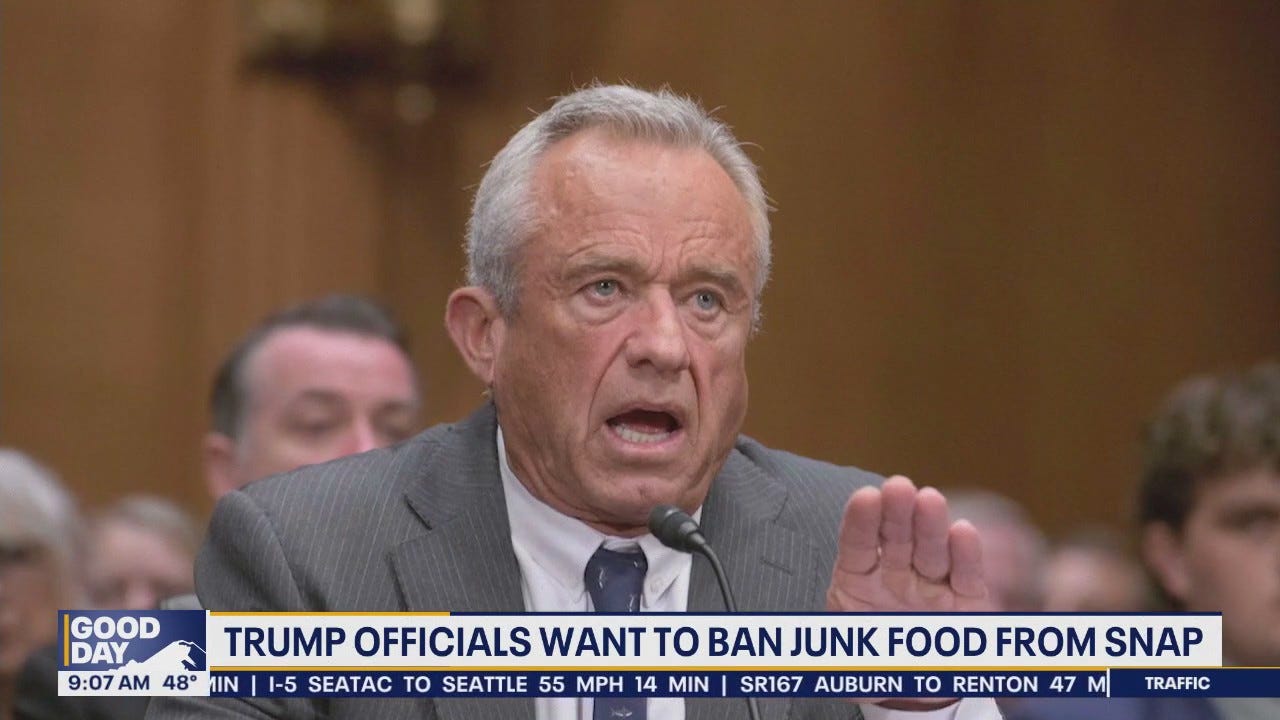Is RFK Jr. Trying to Redefine America’s Dinner Plates? An Exploration of Overreach in Food Regulation

Trump officials want to ban junk food from SNAP
Newly confirmed Health and Human Services Secretary Robert F. Kennedy Jr has urged the government to ban SNAP from being used towards processed foods.
Fox – Seattle
It appears that the ever-controversial Robert F. Kennedy Jr. is advocating for an overhaul of America’s food landscape. But what does this mean for your family meals? His vision has many conservatives crying foul, suggesting that he’s evolving into a **nanny-state liberal** bent on dictating our dietary choices.
Kennedy’s Controversial Stance: Can the Government Dictate Our Diet?
In a provocative statement, Kennedy declared, “I urge every governor to champion legislation that bans ultra-processed foods and dyes in public schools, and to request a waiver from the USDA to eliminate soda from SNAP.” Are we genuinely considering letting government officials control what our children consume? The response from critics is that the “K” in “RFK Jr.” might just as well stand for **”Karl Marx.”**
RFK Jr.: The Ultimate Food Regulator?
In a recent opinion piece, co-written with Agriculture Secretary Brooke Rollins, Kennedy pointed to the escalating rates of childhood obesity, emphasizing: “It is our duty, as those entrusted with overseeing our nation’s food supply and human services, to fix this.” But does this mean squelching Americans’ rights to make their own food choices? It certainly raises eyebrows.
Are We Repeating History? The Ghost of Michelle Obama’s Healthy Initiatives
Echoes of previous administrations emerge as I recall former First Lady **Michelle Obama**’s “Let’s Move” campaign initiated in 2010, which led to the establishment of a childhood obesity task force. Many conservatives reacted vehemently, as numerous media outlets, including Fox News, roared that this was another instance of the **government telling us how to eat.** President Obama’s initiative was labeled a “nanny state run amok” by none other than Sarah Palin.
The Tide of Political Rhetoric: Food Control or Public Health?
Despite the rhetoric, Kennedy’s proposals appear primarily aimed at enhancing dietary options for children. He suggested advancements in **”buy American” policies** within food programs to ensure that wholesome, locally sourced foods are on students’ plates. And yet, many are quick to assert that such moves infringe on personal liberties.
But why is recommending healthier food suddenly associated with communism? It’s worth pondering, isn’t it?
A Call for Autonomy: The Right to Choose Our Cuisine
So, just how much control should officials have over our dietary selections? One might argue that parental rights to decide what foods nourish their children should be inviolable. If taxpayers’ money were to support healthy options, such as fruits and vegetables, should it not also accommodate personal choices—even indulgent ones like Oreos?
Caution: The Food Police Are Watching!
I can’t help but think back to Michelle Obama’s address to the National Restaurant Association. Her call for **simple reforms** posed a dramatic shift from indulgence to moderation in dining. It wasn’t an outright ban but a nudge towards healthier options—something polarizing in today’s climate.
A Bitter Omen: Is RFK Jr. Targeting Our Dinner Tables?
As Kennedy embarks on the **“Make America Healthy Again”** initiative, the implications seem clear. From imposing bans on beloved comfort foods to advocating for food reform through government actions, this feels less like a beneficial change and more like encroachment on personal freedoms.
If the government attempts to limit caloric intake in favor of kale over candy, is it not our prerogative as parents to determine what falls within the spectrum of acceptable food for our families?
Final Thoughts: Finding Balance in Food Freedom
The conversation surrounding food regulation cannot simply be a matter of one extreme or the other. As we grapple with obesity and dietary health in America, striking a balance between personal choice and public health initiatives remains crucial. One thing is clear: food is not merely sustenance; it represents culture, freedom, and personal choice.
So as we collectively navigate these contentious waters, let’s remember that having the **autonomy to enjoy our food**—whether it’s fresh produce or something a bit less nutritious—should always remain a fundamental right.
Stay connected with USA TODAY columnist Rex Huppke on Bluesky and Facebook.






